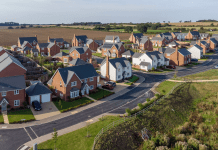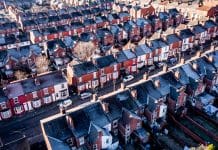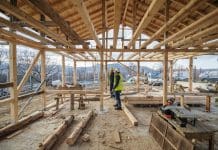Hubert Da Costa, Vice President of EMEA at Cradlepoint explores the value of making affordable housing smarter and the technology enabling this
Amongst cries that the housing market is ‘broken’, ministers recently announced plans to build 250,000 new homes every year to keep pace with demand. At least 10% of these new developments will be ‘affordable home ownership units.’
As people, places and things are becoming connected all around us smart technology has an important role to play in new homes providing a variety of functions: from reporting a broken light bulb, to recording how much energy is being used and even alerting that the garden is in need of a drop of water.
With so many ways to connect the home, housing is being transformed in several areas:
Security
Smart devices can do everything from automated arming and disarming of alarms, to capturing CCTV footage and streaming to an off-site location for centralised monitoring.
Smart locks are a great solution to the age-old issue of lost keys. Only requiring a smart phone with a matching signal to unlock them, access controls can be managed in a centralised online system.
Lighting
The advent of LED technology has made lighting significantly more efficient in recent years, but leaving the lights on is a common way that families waste money and energy.
According to Gartner, smart lighting can reduce household energy consumption by up to 90%. Remotely managing communal area lighting can also improve living conditions and security. Smart bulbs can learn when occupants are usually in or out, which may deter potential thieves.
Heating Systems
Smart thermostats continually monitor energy usage and minimise power consumption, saving between £70 and £150 per household per year, according to the Energy Saving Trust. They can be remotely controlled to switch on the heating when a property is unoccupied, reducing the risk of pipes freezing and bursting. They can also provide a social benefit, by highlighting households that may be struggling with, for example, fuel poverty.
Connected thermostats also support more effective maintenance by continuously monitoring for faults and sending data directly to manufacturers. When a potential problem is identified, the manufacturer can either intervene remotely or send an engineer to solve the issue.
Water Leakage and Damp Protection
Damp and water leakage issues are often an unexpected cost. Even minor leaks can quickly escalate with devastating consequences. With smart sensors, the problem can be highlighted as soon as moisture is identified and addressed before it is too late.
Smart sensors monitor and send real-time data about the property’s humidity and moisture levels. Combined with data from heat sensors, property managers can see where an issue might occur before any major problems arise. This can also have a profound impact on reducing health risks among housing occupants.
Connected Alarms
Smart technology has vastly improved the quality and reliability of household alarm systems. Connected alarms send real-time data to property managers and escalate situations to emergency services if required. Connected household alarms can also be remotely monitored and serviced, reducing the cost of replacing and maintaining systems unnecessarily.
Smart Appliances
Many smart appliances can transmit data to service centres where problems can be diagnosed and replacement parts ordered if required. LG has developed connected appliances that can save energy and money by operating more efficiently. The ‘Smart Diagnosis’ feature quickly troubleshoots issues before they become bigger problems.
Healthcare
The NHS deals with more than one million patients every thirty-six hours. Connected technology could benefit vulnerable tenants through remote monitoring and communication. This could in turn ease the high volume of people attending medical clinics for check-ups.
Smart Meters
There are 4.2 million smart utility meters in homes and businesses across the UK. By monitoring heating, electricity and water usage in real time, tenants and property managers no longer need to rely on estimated bills or regular meter checks. In turn, tenants can be assured that they only pay for exactly what they use.
Simply put, having ‘smart homes’ will make managing housing easier, more affordable and more efficient.
Hubert Da Costa
Vice President of EMEA
Cradlepoint
















